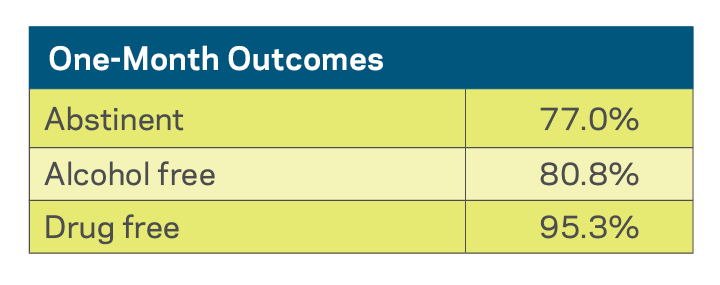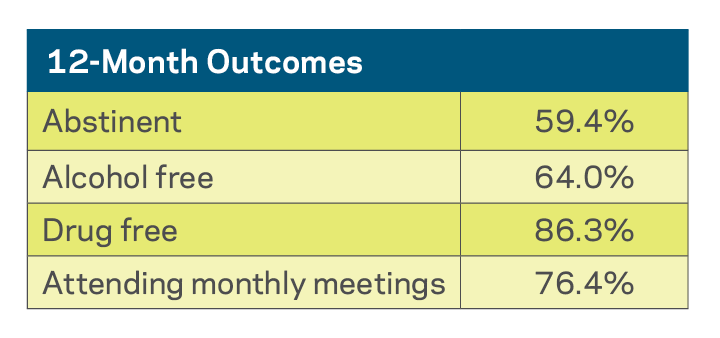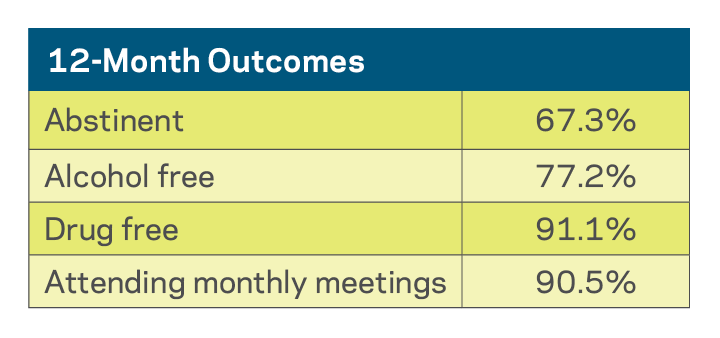Patient Outcomes Study Results at Hazelden Betty Ford
Butler Center for Research - June 2023

Download the Patient Outcomes Study Results Research Update
The Butler Center for Research recently concluded a two-year study of patient outcomes at Hazelden Betty Ford. We tracked patient progress and conducted thousands of phone interviews with patients across treatment settings, including residential, virtual and intensive outpatient services, to assess for abstinence, quality of life, and commitment to Twelve Step programming or similar peer support groups.
The findings below are organized by treatment setting.


The Hazelden Betty Ford Foundation aims to improve overall well-being among patients, and at 12-month follow-up, approximately 86 percent of the inpatient population reported having good or better overall health, and 86 percent reported having good or better quality of life.
Receiving Treatment as Planned
Previous analyses have shown that receiving treatment as planned was strongly associated with abstinence, which was further supported by our most recent findings:
- Staff-approved discharge decreased the odds of relapse by 50 percent—59.5 percent of patients discharged with staff approval remained abstinent at our 12-month follow-up, whereas only 42.4 percent of patients discharged without staff approval remained abstinent.
- Receiving treatment as planned was also strongly associated with group meeting attendance; staff-approved discharge increased the likelihood of regularly attending meetings by over 200 percent.
Virtual Intensive Outpatient
At the beginning of the pandemic, we also examined patient outcomes as we transitioned to virtual care. We followed 3,642 patients who received intensive outpatient programming between January of 2020 through March of 2021. Of those patients, 507 completed 12-month follow-up assessments, which we analyzed for the purposes of this report. Of the group with data at 12-month follow-up assessments, 10.6 percent did not receive treatment as planned (again, measured by whether or not patients were discharged with staff approval).
The overwhelming majority of the virtual outpatient population reported high levels of overall well-being at 12-month follow-ups.

Receiving Treatment as Planned
- Being discharged with staff approval decreased the odds of relapse by 60%.
- Approximately 69.6% of those who were discharged with staff approval remained abstinent at 12-month follow-up, whereas only 48.0% remained abstinent among those who were discharged against staff advice
Looking Forward
In our continuing efforts to refine outcomes and advance our understanding of recovery, we are working on implementing new measures into our ongoing evaluation design and surveys, including measures that capture the mechanisms that we aim to address through our model of care.
These measures include constructs of social connection and recovery capital. Recovery capital is a construct that captures internal (e.g., sense of purpose) and external (e.g., social support) assets that can help to initiate and sustain recovery. These measures will be assessed across all patients and all levels of care at Hazelden Betty Ford.
